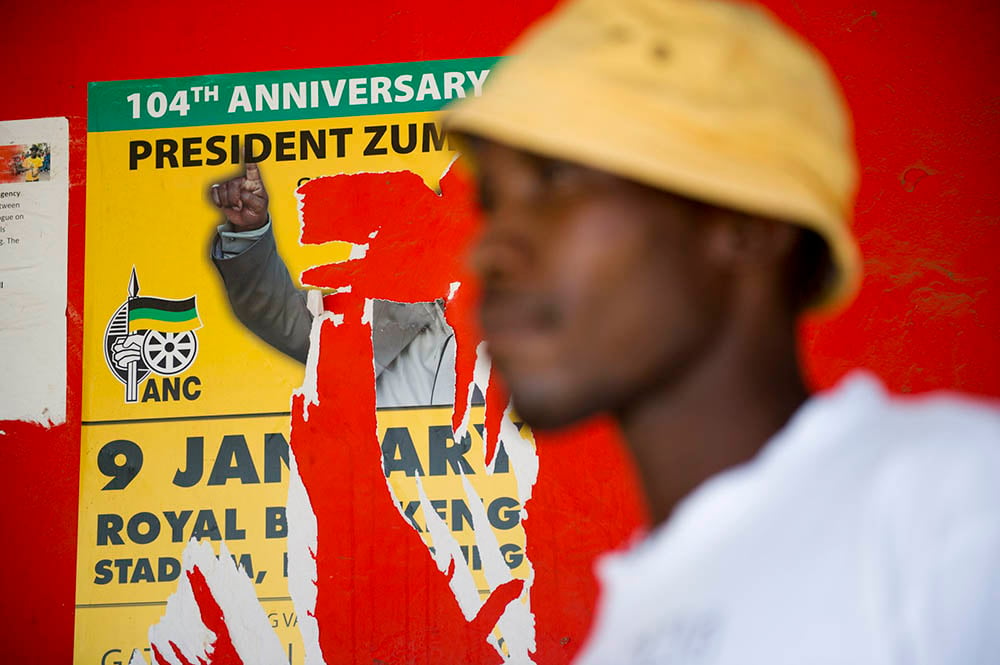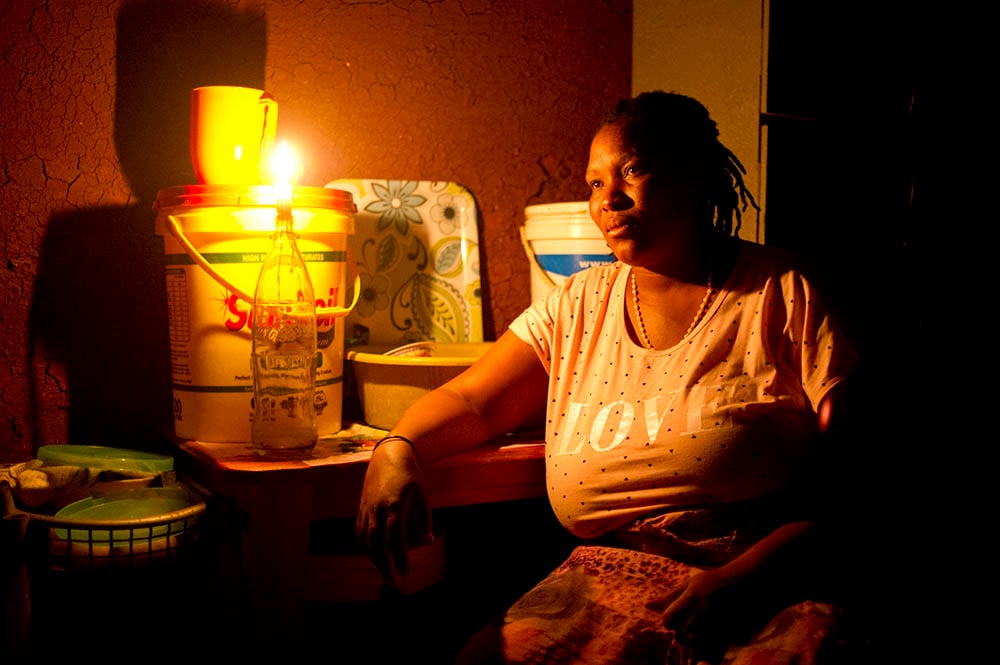The ANC has denied that the handing out of houses this week was an election stunt.
Charity Dlamini sits in a two-roomed house in Marikana where a paraffin lamp is the only source of light in her pitch-dark neighbourhood.
Dlamini is from the Free State and came to Marikana in the North West in 2003 to reunite her family – her husband is a contract worker at Lonmin platinum mine. She lives in Ward 31, an area with no running water or electricity.
“We live on top of mines that are worth millions, but we suffer the most. This darkness you see has become our daily bread,” she says.
Dlamini, who is a housekeeping supervisor at a nearby resort, is full of frustration, anger and disappointment. She says she is tired of living a substandard life and of the government’s broken promises.
“Just by existing, our children have a disadvantaged life. How will they have a better life when they learn under candlelight? When the teacher says to them they must watch a certain programme on television for school, they cannot even do that,” Dlamini laments.
She worries about bringing up children in Marikana, and is particularly concerned about the welfare of her four daughters, aged 17, 11, seven and four months. She fears they will fall prey to some of the mineworkers in the community who entice young girls with money and gifts.
“These miners buy our daughters [computer] tablets and nice phones, things we cannot afford. Even when we try give them the little that we can, when they see these things they are easily impressed.”
The lack of access to electricity and running water complicates the lives of Ward 31 residents. They buy food daily as they don’t have refrigerators. And they have to pay R5 at the local spaza shop to charge their phones.
Despite these stumbling blocks to a better life, Dlamini and her two colleagues and neighbours, Happiness Manyifolo and Morwa Mosala, are still loyal members of the ANC.
“I will never leave the ANC … I know my suffering continues because of them but, if they cannot end my suffering, no other political party can,” says Mosala, who used to be an ANC volunteer before getting a job as a cleaner.

Despite anger over the Marikana killings, reflected in the destruction of its posters, the ANC still has staunch supporters. (Photos: Delwyn Verasamy, M&G)
Since the Marikana massacre in 2012, there has been a significant shift in sentiment in the area but, at the core, the overriding issues have remained the same. For many, Marikana and its poverty have become symbolic of the failures of the government and the party.
The ANC, in preparation for its 104th birthday celebrations, which will take place on Saturday January 9 at the Royal Bafokeng Stadium in Rustenburg, near Marikana, has taken the time to promote the party and to reach out to Marikana and North West residents.
President Jacob Zuma was scheduled to hand over houses in Marikana West on January 6, but he failed to show up and was represented by Human Settlements Minister Lindiwe Sisulu instead.
After the events of August 10 2012, when 34 protesting miners were killed by the police, Marikana has seemingly become a no-go area for Zuma. During campaigning for general elections in 2014, he cancelled his visit because of safety concerns.
Still, for the housing handover, hundreds of residents in ANC-regalia braved the sweltering heat and cheerfully sang songs praising both the president and the party. Many in Marikana need to believe.

Charity Dlamini remains a loyal ANC supporter.
In 2012, Thabo Kau was promised a job at Anglo American’s Amandelbult platinum mine near Northam, about 95km from Marikana. But that fell through and today Kau herds his brother’s cattle, driving them to a nearby water source, which sometimes runs dry because of the drought.
With most of the grasslands drying out, he has to supplement their diet by buying feed, an extra cost that he must take into account.
“Life is not perfect, but it is not so bad also,” he says. “We do what we can to survive but there needs to be more improvements like people having their own taps in their yards and not having to rely on communal water tanks.”
The ANC’s 104th birthday posters have been plastered on lamp posts and walls. In many places, these have been vandalised and torn down, but ANC members continue to put up more, sometimes even twice a day. In Wonderkop, where most of the Lonmin employees affected by the Marikana massacre live and where resentment against the ruling party is at fever pitch, the very mention of the ANC could result in bloodshed.
As the party celebrates its anniversary and prepares for the coming local government polls, many hope that this will be the year in which it fulfils its promises and that their lives will be changed for the better.
But casting its shadow on the N4 that leads to the Rustenburg party will be the Wonderkop koppie, where the miners were massacred.